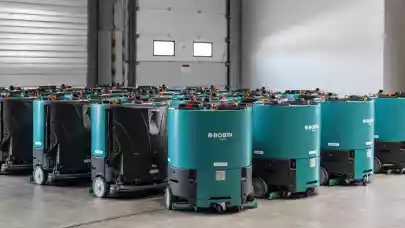
Péter Számely, Head of Real Estate Finance Department at Austrian mortgage bank HYPO NOE talked to Property Forum about the funding of COVID-resistant property assets and the growth potential of markets in Central and Eastern Europe.
This interview was first published in Property Forum’s first annual “The 50 most influential people on Romania’s real estate market” publication.
What is your expectation regarding the pandemic? Do you expect things to go back to relatively normal in Europe soon?
We hope that with the progress of the vaccination programmes, life will gradually return to (a new) normality soon. I certainly believe that the new world will not be the same as it was pre-COVID. Here, I would refer to the accelerated shift towards more digitalisation, partly fuelled by the pandemic too. In our case, due to safety reasons, most of our colleagues work from home.

Péter Számely
Head of Real Estate Finance CEE
HYPO NOE Landesbank für Niederösterreich und Wien AG
What kind of assets do you prefer to finance and which are the ones that are not that attractive to you currently?
We tend to prefer COVID-resistant assets. This means that we rather want to see more logistics/industrial projects, residential properties (in Western countries) and development sites on a short-term basis. This list is followed by the type of retail serving the daily consumer, such as food stores, drug stores, pharmacies, pet food, etc. Offices might be a challenge, as it is unclear where the new balance can be struck between working from home and working in the office.
Are there no-go assets for you, such as hotel, leisure, retail, etc.?
Certainly, hotels went through a difficult time over the last year or so and we shall see how and at what pace they will be reopened. Currently, hotels are not the subject of new financing considerations. To a lesser extent though, but shopping centres were also strongly hit by the pandemic. Those which had been occupied by large fashion or shoe retailers, entertainment, and food court areas, suffered badly. This asset class however is expected to recover quicker than hotels.
Alternative financing ways are getting more popular for large real estate companies across CEE. Do you see this as a threat from a commercial bank’s point of view?
Competition is certainly a challenge. But it is always so, irrespectively of the type of competition. However, if we take a closer look, the picture is not necessarily that bad. We have seen several large-scale bond financings, which is certainly understandable from the borrowers’ point of view. On a larger scale, borrowers can enjoy access to cheap money. There is a large demand for bonds by investors too. This means that it makes sense to do it. However, there might be some issues with bond financing. As interest rates start to rise, property will lose value, forcing borrowers into early repayment, at least partially, to meet loan to value covenants. With this type of financing, there is no way at all to negotiate with the lenders (investors) to waive such a breach. Increasing interest rates will have a negative impact on bond values too which may force bondholders to consider an immediate sale of their holdings if they can. There might be situations where the bond markets become dead. Then traditional balance sheet lenders providing project finance will be back in focus again.
What is your general perception of the real estate markets in CEE?
In general, the real estate markets in the CEE region are healthy. Of course, they were hit by the pandemic but the growth expectation after the pandemic is higher there than the European average, i.e. the markets in this region will recover quicker.



